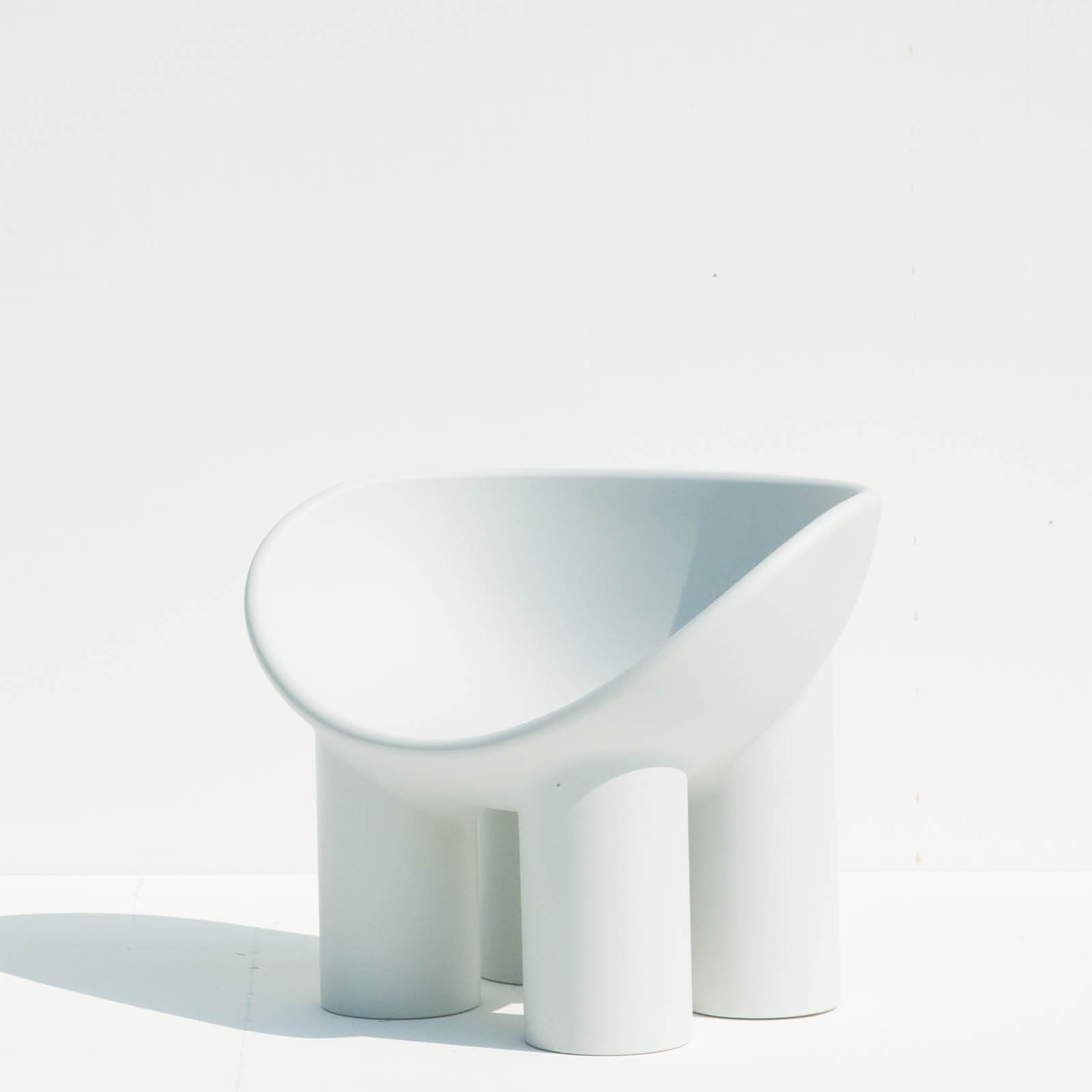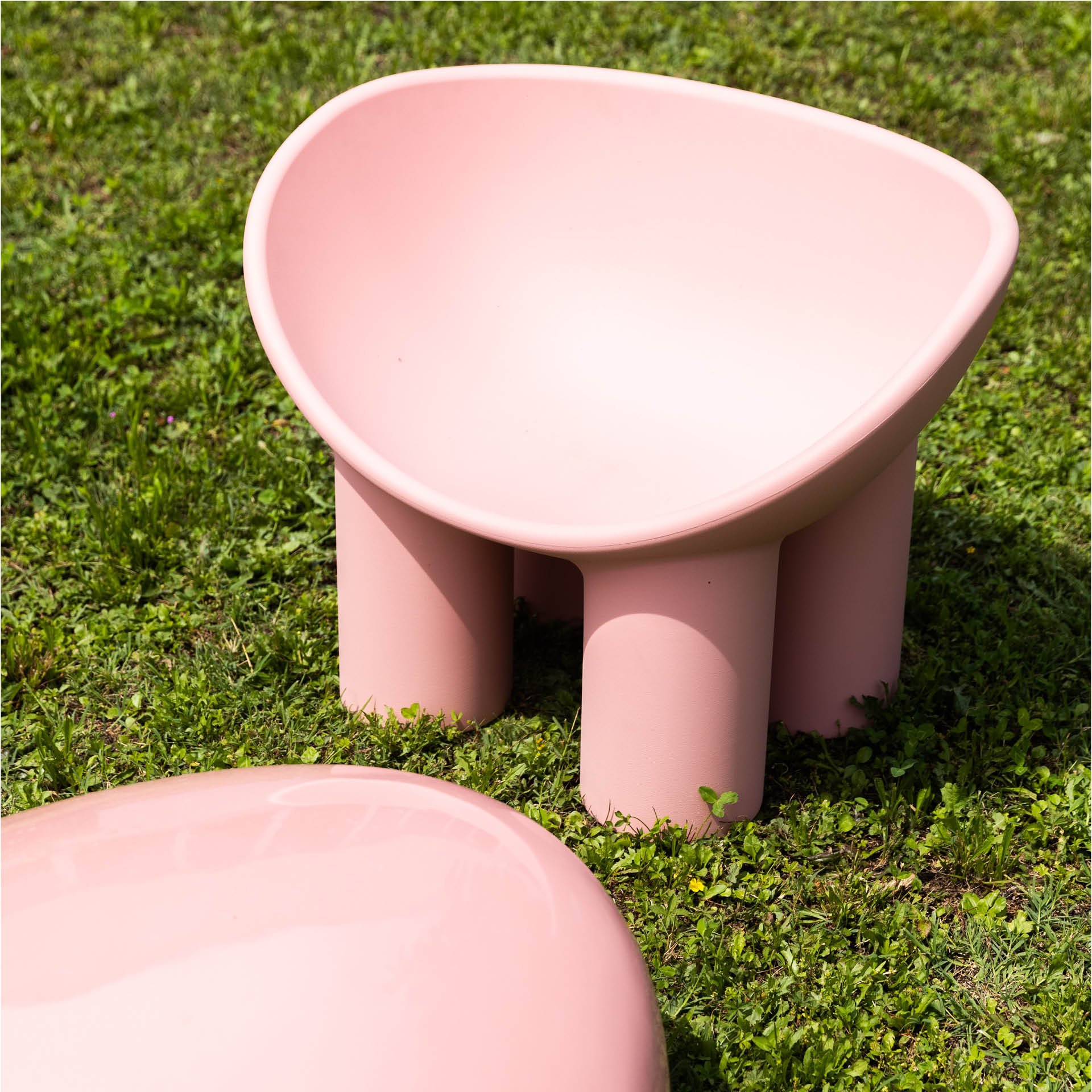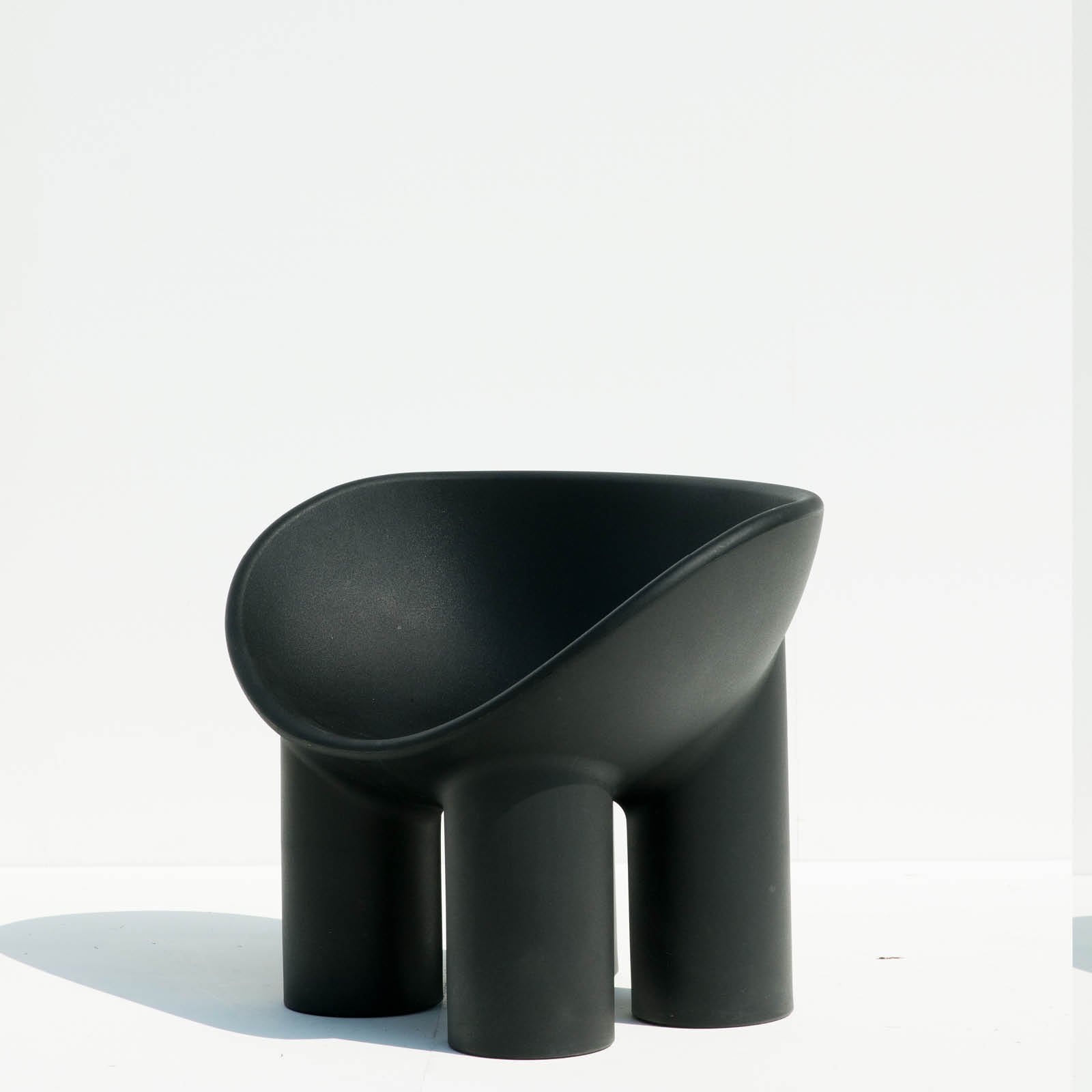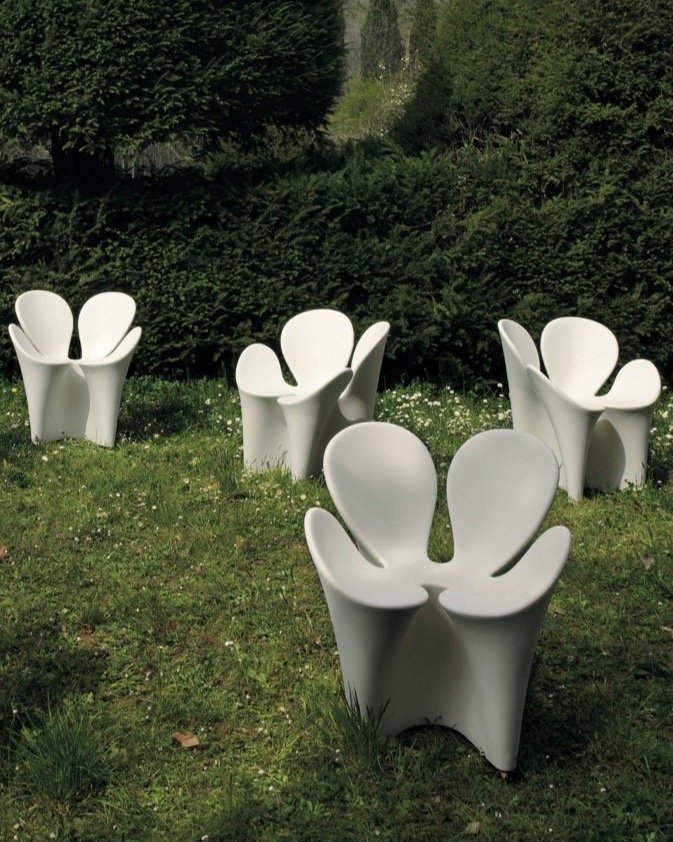 Image 1 of 3
Image 1 of 3

 Image 2 of 3
Image 2 of 3

 Image 3 of 3
Image 3 of 3




Liba Chair
Borek Sipek for Driade, Italy
Woven rattan cane wih blackened wooden frame.
H 910 mm x W 660 mm x D 600 mm x SH 440 mm
Borek Sipek (1949-2016) studied interior design at the School for Arts and Crafts in Prague. In 1983 he established his design workshop in Amsterdam, the base of his incursions between East and West. In those years he started his collaboration with Driade, designing furniture, objects and ideas of suggestive originality. A poet of tradition grafted on the unequivocal restlessness of a modern sensibility, Sipek has thus started systematic explorations in the infinite universes of craftsmanship, testing himself with techniques and materials with ancient roots. Šipek was often referred to as the father ‘Neo-Baroque”.
Borek Sipek for Driade, Italy
Woven rattan cane wih blackened wooden frame.
H 910 mm x W 660 mm x D 600 mm x SH 440 mm
Borek Sipek (1949-2016) studied interior design at the School for Arts and Crafts in Prague. In 1983 he established his design workshop in Amsterdam, the base of his incursions between East and West. In those years he started his collaboration with Driade, designing furniture, objects and ideas of suggestive originality. A poet of tradition grafted on the unequivocal restlessness of a modern sensibility, Sipek has thus started systematic explorations in the infinite universes of craftsmanship, testing himself with techniques and materials with ancient roots. Šipek was often referred to as the father ‘Neo-Baroque”.















